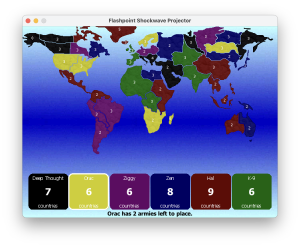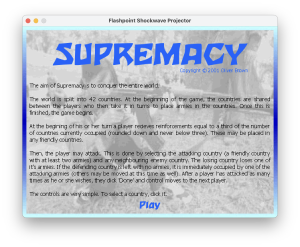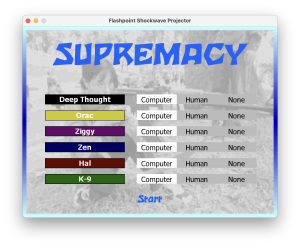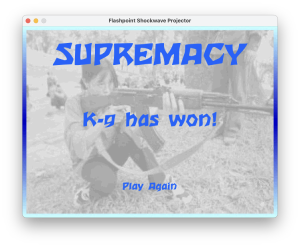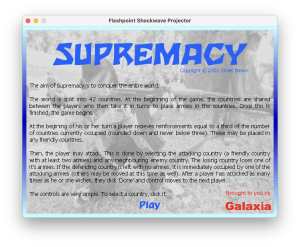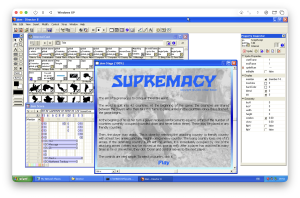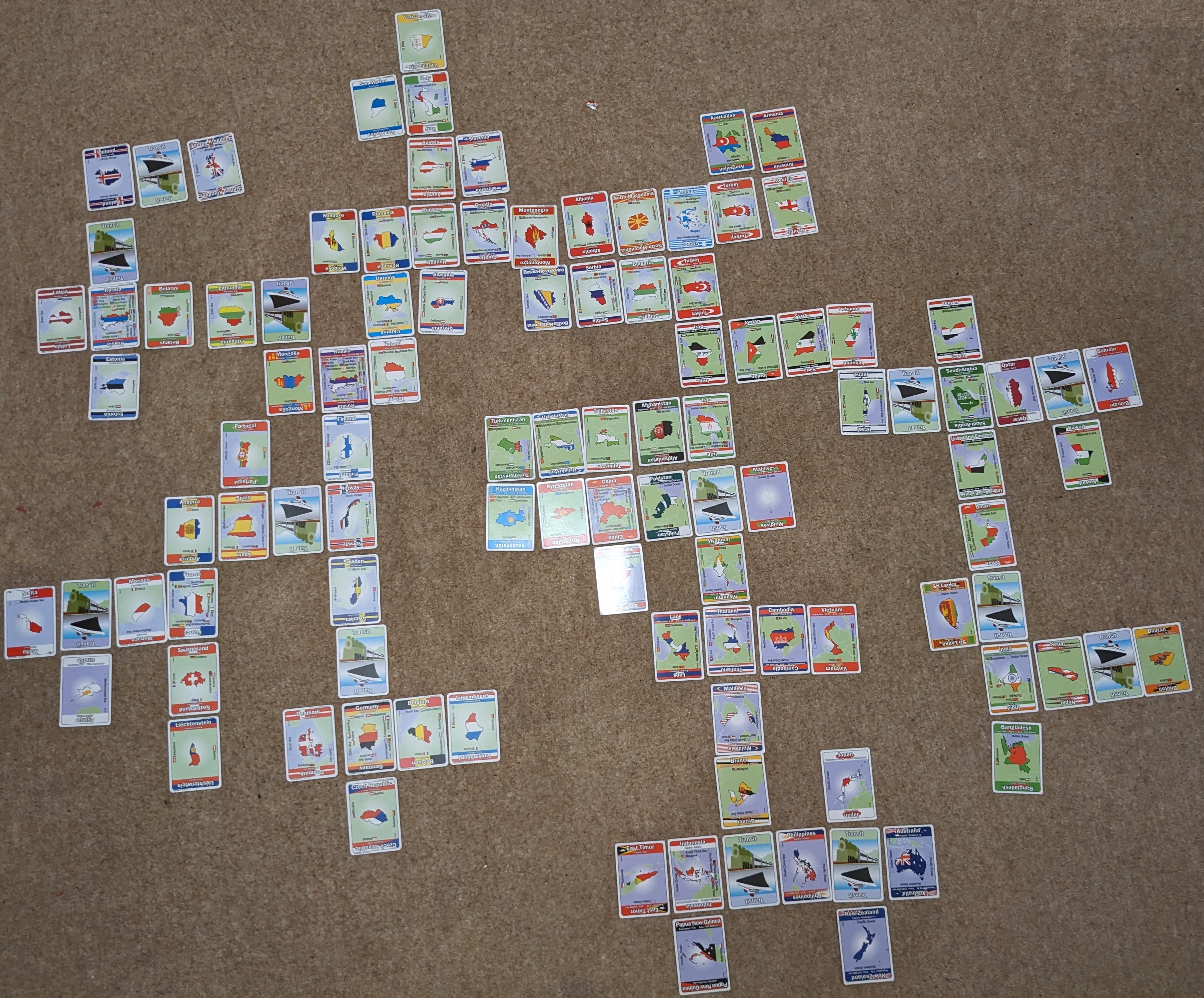Supremacy - Shockwave game
I started programming from a young age. One of the earliest programming projects I worked on that I was pleased with was a version of Risk called “Supremacy”.
Shockwave was a technology created by Macromedia as a sort of companion/competitor/successor to the then ubiquitous Flash1.
Back in late 2000, I managed to get access to Macromedia Director1, the authoring software, and started playing around with it.
This was back when I was learning much of my programming from books (there was less available on the internet then). So I bought “Advanced Lingo for Games” by Gary Rosenzweig (Lingo being a bespoke programming language created just for Director).
Both Director and Advanced Lingo for Games are available on the Internet Archive now.
Supremacy is heavily based on the “Strategy Game” code sample included with that book. So much so, that the “Copyright © 2001 Oliver Brown” with no attribution makes me cringe a little now. So now is as good a time as any to thank Gary Rosenzweig for writing the book (and the code). I did eventually take it further, but that is for another post.
I made the game available on a website called “Shocklive!” on March 14, 2001 (and apparently released an update on March 18 with “no known bugs and better AI”).
Shocklive! as of May 17, 2001.
Today, the game has been submitted to the Flashpoint Archive and should be available soon.
Random trivia
Since it has been almost 25 years since I worked on the game, my memory has gaps. But I do still have the source code, so here are some things I can either remember or have worked out.
The name
Early in development I called it “Domination”, which is why the main file for the game is called dom.dcr.
Risk mechanics
It really is a bare bones version of Risk (mostly because it was designed as a programming tutorial and at best as a jumping off point to do more).
It has the original 42 countries from Risk, and uses the base rule: reinforcements equal to a third of your country count. It does not have continent bonuses however. This makes it much harder to snowball and as a result games tend to take longer (see the video).
It also does not use dice - every battle just gives attackers and defenders an even chance to win. This, combined with the fact that it also has no cards further lengthens games.
The computer player names
The default computer players are named after famous fictional AIs:
- Deep Thought - The super computer from the Hitchhiker’s Guide to the Galaxy that determined the Answer to The Ultimate Question of Life, the Universe, and Everything was 42, and which went on to design an even more powerful computer, the Earth.
- Orac - A sophisticated artificial intelligence from the British sci-fi TV series Blake’s 7.
- Ziggy - The super hybrid computer from the sci-fi TV show Quantum Leap that runs Project Quantum Leap.
- Zen - The master control computer of the Liberator, also from Blake’s 7.
- Hal - The artificial intelligence and main antagonist in 2001: A Space Odyssey.
- K-9 - The robot dog that was a companion in Doctor Who.
Title background

The background image is a Vietnamese girl holding an AK-47. I believe I sourced it from somewhere implying the girl was undergoing training to be part of some militia or military.
I still have the original copy and when I did a reverse image search I found it, with the description:
a Vietnamese high school girl practises taking aim with an AK-47 assault rifle during military training for students in Hanoi September 8 2000 high school and university students in communist ruled Vietnam take part in such training every year as part of a national defence programme"
Fonts
The main title font is Romulan Eagle. It sounds Star Trek based (which definitely makes sense with my interests at the time) but I honestly cannot remember anything about it. I have no idea where I found it. Possibly from the internet, possibly from a CD (CDs full of fonts were popular then).
The body font is Tahoma a standard Microsoft font which was apparently the standard screen font for Windows XP.
Also included in the project for some reason is Monaco, a font by Apple that was standard on Macs at the time. Which is a bit odd since I was using Windows at home and Acorn Computers at school.
Galaxia branding
Some time after the initial release, I added the message “Brought to you by Galaxia”. Galaxia is another game I developed (from which I got the online name I’ve been using ever since - GalaxiaGuy). I was working on a new version of Galaxia (which I tried a few times) when I first started this blog. The old Galaxia posts are still available.
Life on this blog
In fact, the game was available for a while directly on this blog. Sadly, this is no longer the case.
Screenshots
Some in game screenshots:
Opening in the project in Macromedia Director on a Windows XP VM:

